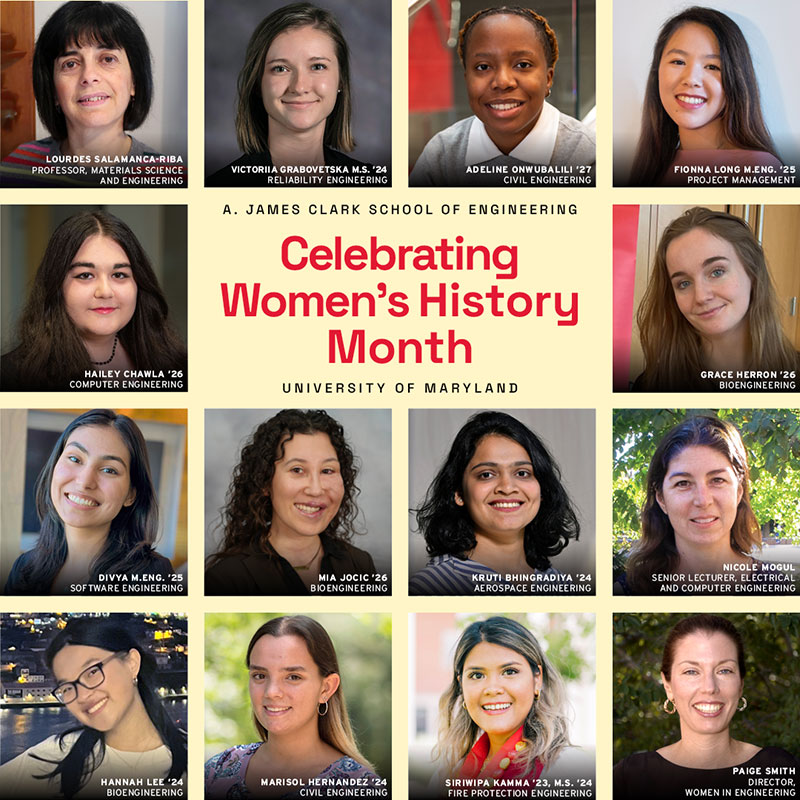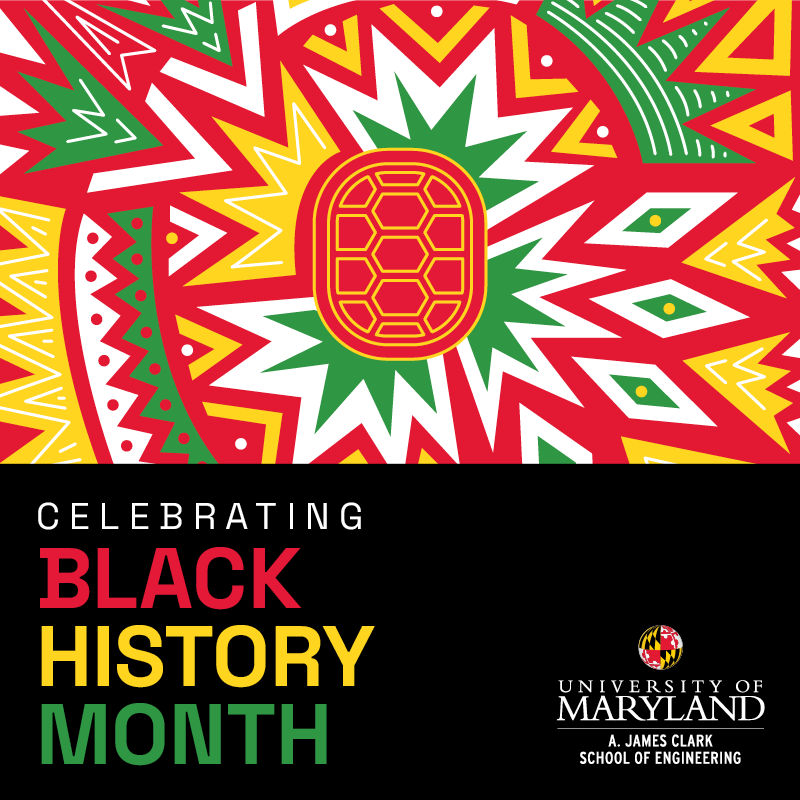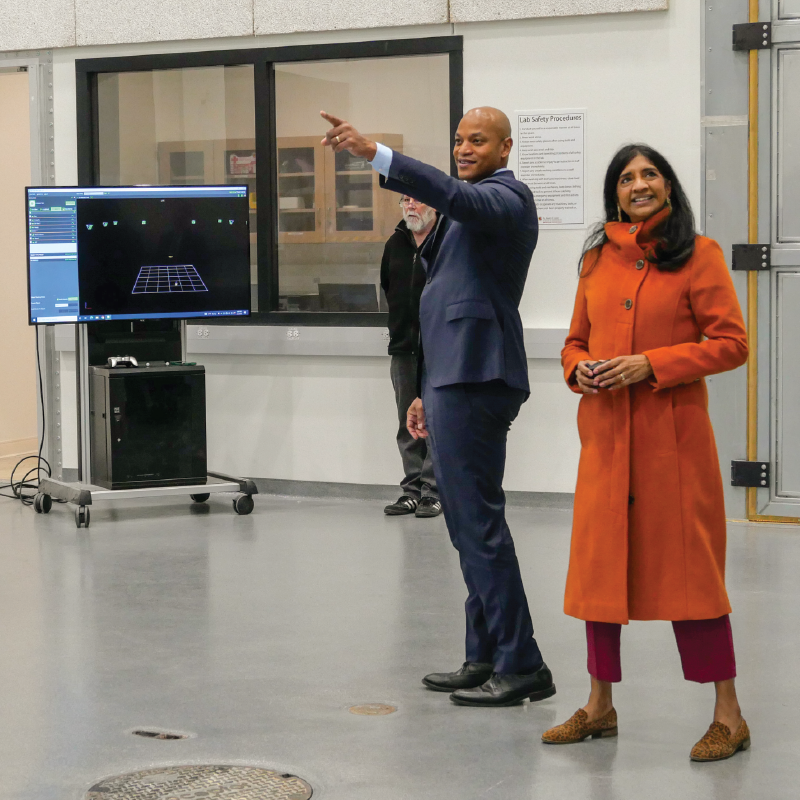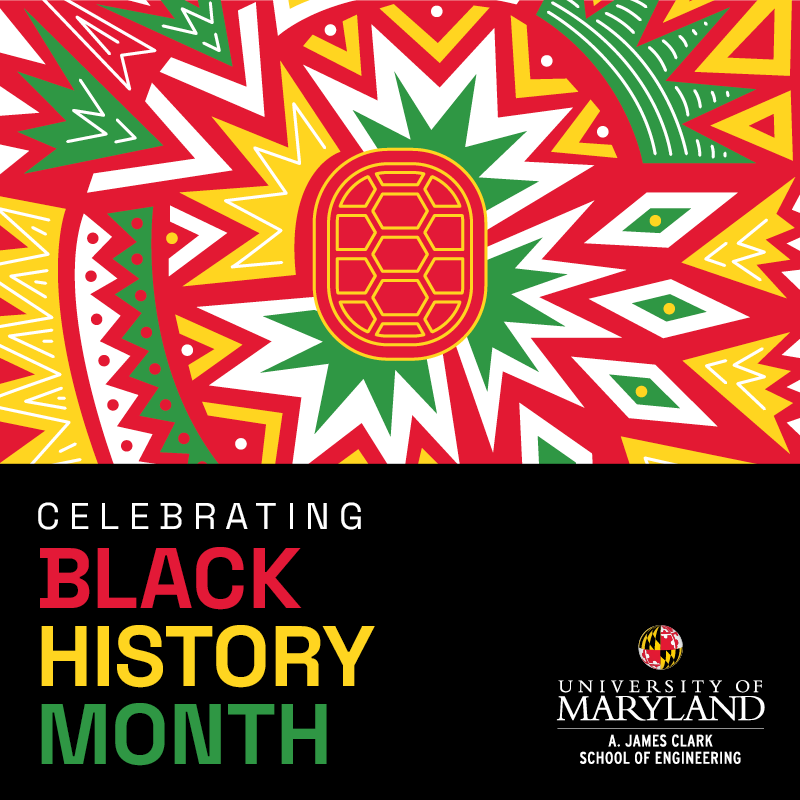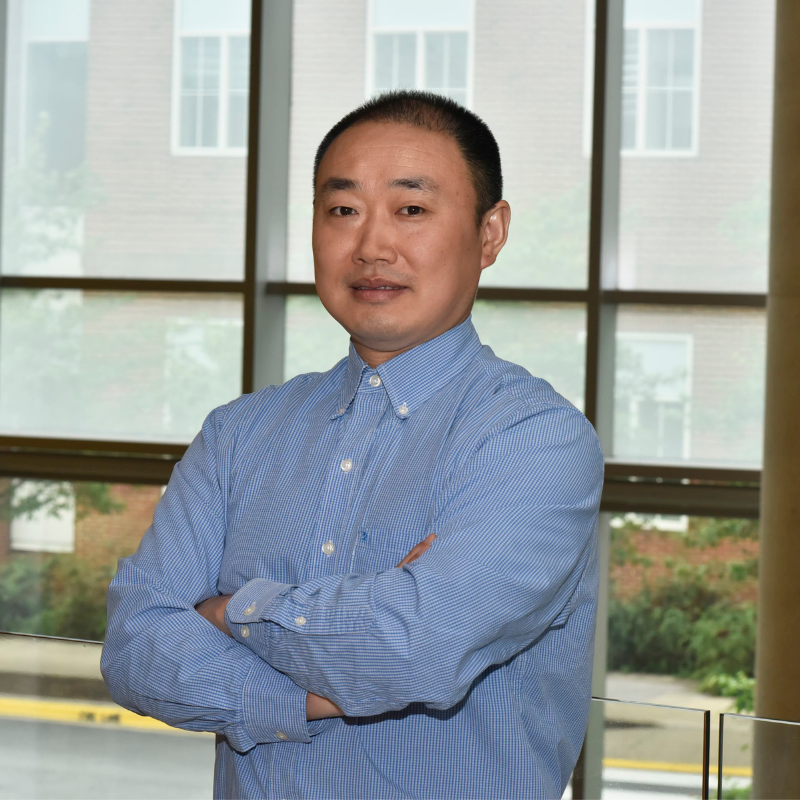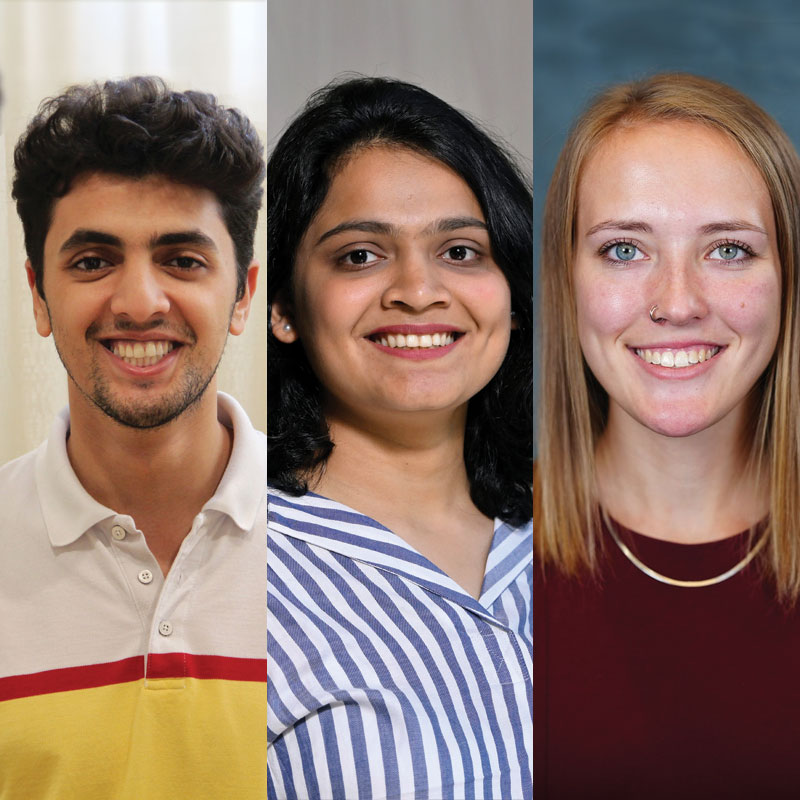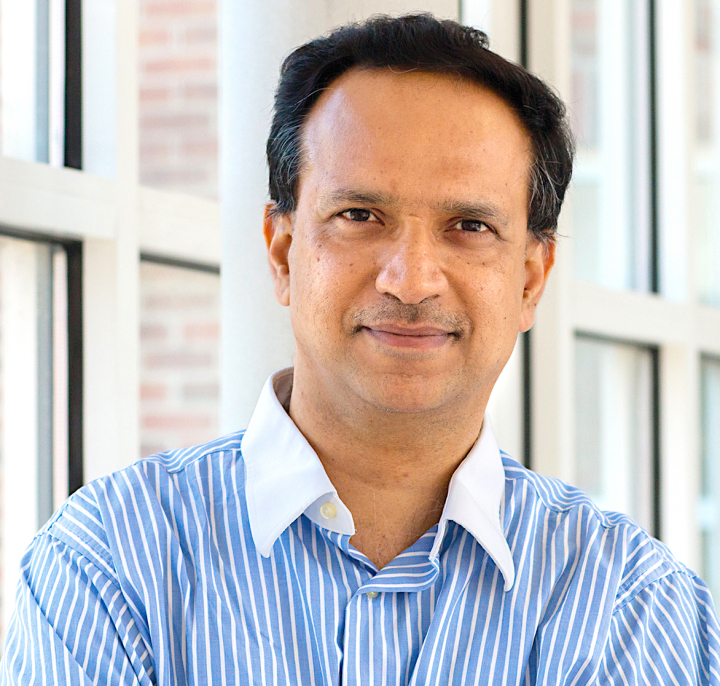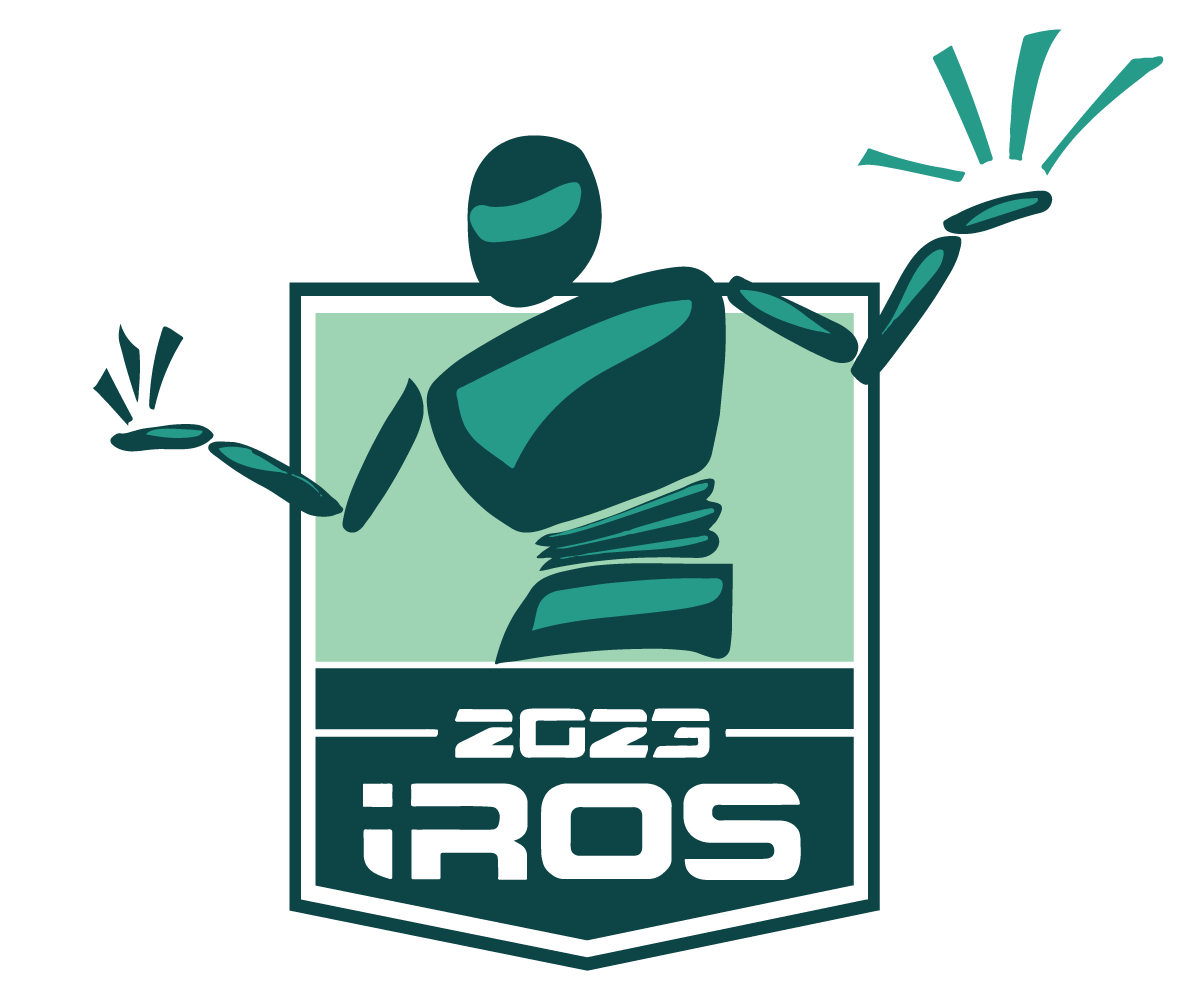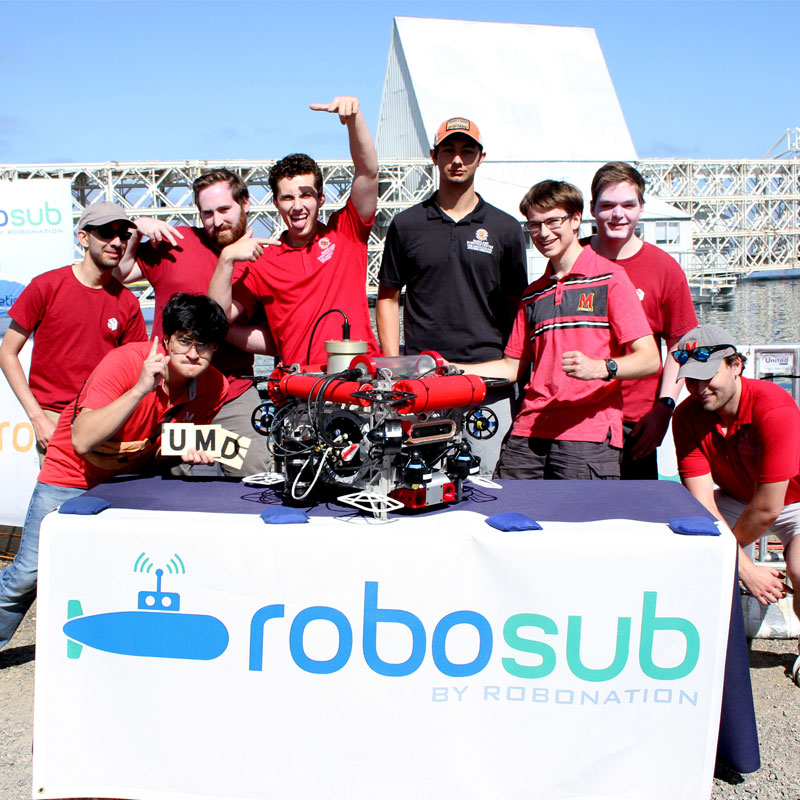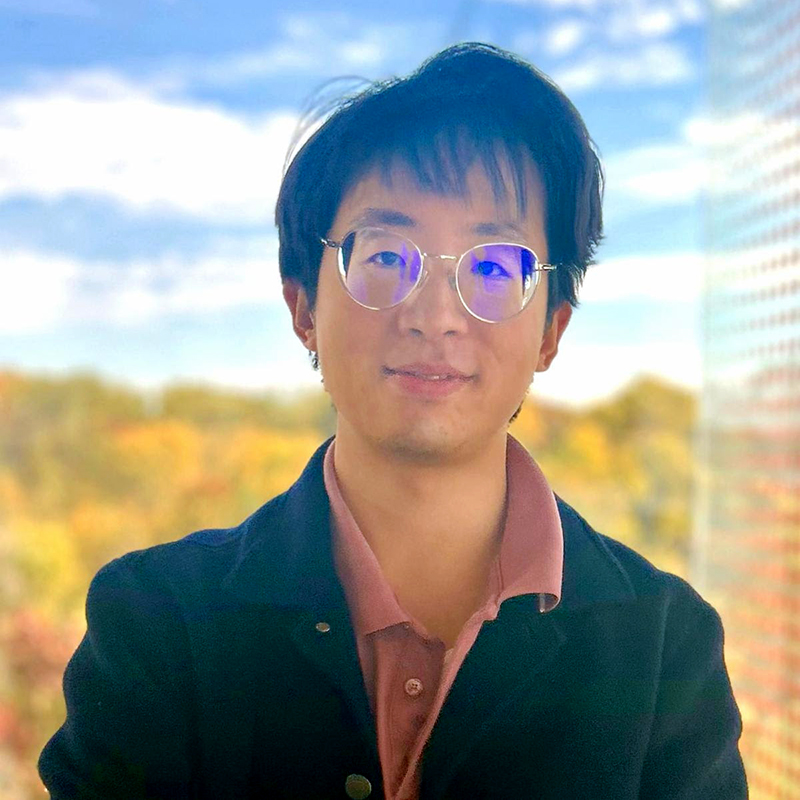News Story
UMD Engineering for Social Change Class Awards Non-Profit V-LINC $10,000 Grant to Support Custom Assistive Technology Program
During a ceremony held December 12, 2016 on the University of Maryland (UMD) campus, students in the Engineering for Social Change course awarded Baltimore based non-profit V-LINC a $10,000 grant to support their Custom Assistive Technology Program. The grants for the class are funded through generous support from the Neilom Foundation, and to date, more than $30,000 has been awarded since the program started in Spring 2015.
Part of UMD's Center for Engineering Concepts Development (CECD) in the Department of Mechanical Engineering, Engineering for Social Change enables students to learn that there is more to engineering than just solving engineering problems, and inspires them to use their skills and mindset to practice social entrepreneurship to pursue engineering ideas that make a difference.
The course, which has been in the making for more than two years and was first piloted spring 2015, predates the establishment of the newly-formed Do Good Institute on campus. However, the course is dedicated to similar ideals of helping small non-profit organizations make a difference using technology for positive social change.
CECD Director and course creator Dr. Davinder Anand opened the event with remarks on the course, and his vision for it. "This course touches on material which is the essence of why we are engineers. Our work enhances the quality of life and brings considerable benefit to mankind in all phases of their existence. Clearly there is interest and support for the viewpoint we espouse, and we believe this will create more, and perhaps significant, opportunities for engineers to make important contributions to the welfare of mankind."
Supporting this idea, Dr. Robert Grimm, director of UMD's Do Good Institute, noted during the event that "Engineers to me are the perfect group, because they are the creators of things that transform the world."
More than 60 students, faculty, staff, and invited guests attended the award ceremony which also included discussion on the course, a showcase of student work and the presentation of this semester's $10,000 Neilom Engineering for Social Change Award. V-LINC's Volunteer Services Manager Angela Tyler was on hand to accept the grant.
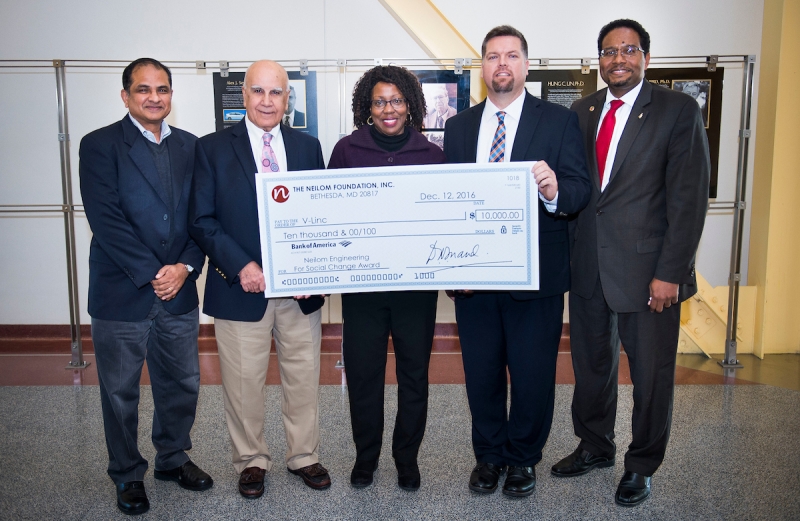
Mechanical Engineering Department Chair Balakumar Balachandran, CECD Director Davinder Anand, V-LINC Volunteer Services Manager Angela Tyler, CECD Assistant Director Dylan Hazelwood, and A. James Clark School of Engineering Dean Darryll Pines. Photo credit: Lisa Helfert
No stranger to working with engineers, V-LINC’s mission is to use volunteer health and engineering professionals, as well as engineering students from regional schools, to create technological solutions to improve the independence and quality of life for individuals living with disabilities. In particular, they focus on specialized, one-of-a-kind devices for individuals whose needs are not met by any existing device.
"[V-LINC offers] the opportunity for engineers to take their technical skills and apply it to a real person, to help them change their lives," explained Tyler. "Once these individuals receive the finalized project, it literally changes their lives. It helps them to be more independent, to move around on their own. Just the joy these engineering students see in helping others, giving to someone else, is amazing."
Started more than 30 years ago by then-Westinghouse mechanical engineer John Staehlin, V-LINC helps change the lives of children and adults with all types of disabilities without regard to economic circumstances, age or severity of disability. It is V-LINC's aim to help people to be successful and independent at school, in the workplace and at home. In addition to individual requests, V-LINC hosts twice yearly clinics to build custom fitted bikes for children with disabilities.
Throughout the semester, students in the Engineering for Social Change course heard from engineering faculty and other professionals across a variety of fields. These included Professors Michael Pecht, Jungho Kim, Mark Fuge and Millard Firebaugh from Mechanical Engineering, and Barton Forman from Civil Engineering. Invited lecturers included Robert Grimm from UMD's School of Public Policy, Erica Estrada-Liou of UMD’s Academy of Innovation and Entrepreneurship, Satyandra Gupta of the University of Southern California, Smeeta Hirani of World Pulse, James Rohr of the Naval Marine Mammal Foundation and UMD alum Suchita Guntakatta (B.S. '91, Science and Statistics) from the leadership of the Gates Foundation.
Students discovered that engineering is more than just engineering, realized that technological solutions can have unintended social consequences and the need to consider those impacts from many angles. The students also had the opportunity to select an engineering-related cause that was important to them, solicit requests for proposals and visit with area non-profits before determining who would receive this semester's award.
To date, more than 120 students have participated in the Engineering for Social Change course, and this semester's award marked the third student-selected $10,000 grant given through the program.
Past recipients included FRESHFARM Markets for their FoodPrints Program at Ludlow-Taylor Elementary School and Bread and Water for Africa® to support building a community well in Freetown, Sierra Leone that provided life-saving clean water for more than 2500 people in the area.
Beyond the Engineering for Social Change curriculum, CECD has partnered with the College of Southern Maryland (CSM). Dylan Hazelwood, Assistant Director of CECD, notes that “We worked with CSM in Spring 2016 to support their first annual Entrepreneurship in Southern Maryland Challenge, and based on its tremendous success we look forward to a new social entrepreneurship course CECD is supporting in Spring 2017, offered from their newly formed Entrepreneur and Innovation Institute.” CECD has also established internship and fellowship opportunities within the program and recently published their new book Engineering for Social Change: Engineering is Not Just Engineering.
In an excerpt from the book, Anand states that "we must, as part of our engineering education, connect to the social fabric of life," and addresses his hope for students in the class that they "… learn enough to start asking many questions at the intersection of engineering, philanthropy and social change and how they may, will or should impact public policy."
Students like mechanical engineering senior Nehemiah Emaikwu agree. "As a senior, it's easy to focus on 'what' I'll be doing, rather than 'why' I'll be doing it," he explained. "This course really pushed me to think of the latter in order to better determine the former!"
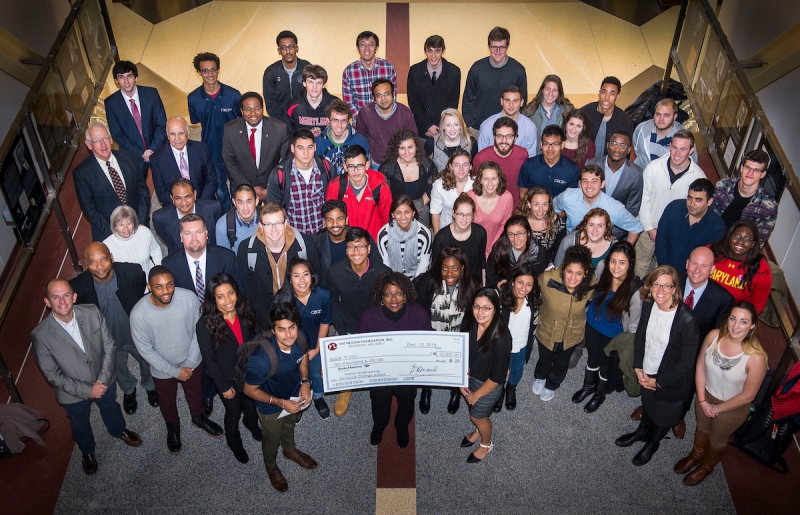
Fall 2016 Engineering for Social Change students, faculty, staff and grant recipient.
CECD, established in 1998, is a platform for experimenting with new ideas in engineering education, future technologies, research and the impact of engineering on society. CECD's mission is to undertake activities to benefit the economic welfare of the state of Maryland and the Nation by supporting symposia, special groups, courses and innovative activities of contemporary interest.
The Neilom Foundation is a 501(c)(3) non-profit in Bethesda, Maryland, and was established in 2013 in memory of Dilip Anil ‘Neil’ Anand, with the singular mission of improving the lives of young people through the intersection of education and technology.
Published December 14, 2016
